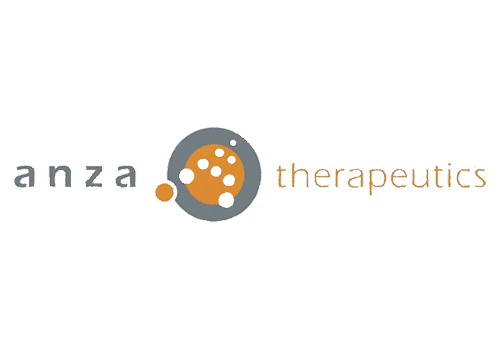预约演示
更新于:2026-02-26
ANZ-100
更新于:2026-02-26
概要
基本信息
原研机构 |
在研机构- |
权益机构- |
最高研发阶段终止临床1期 |
首次获批日期- |
最高研发阶段(中国)- |
特殊审评- |
登录后查看时间轴
关联
1
项与 ANZ-100 相关的临床试验NCT00327652
Phase 1 Dose-Escalation Study of Safety and Tolerability of Intravenous CRS-100 in Adults With Carcinoma and Liver Metastases
This clinical trial evaluated the safety and tolerability of CRS-100, an investigational agent containing a live-attenuated strain of Listeria monocytogenes (Lm). CRS-100 is attenuated by genetic modification to limit cell to cell spread and invasion of liver cells. These attenuations result in decreased virulence of CRS-100 in mice but retain the ability of the investigational agent to stimulate immunity in test animals and generate anti-tumor activity in mice. The primary objective of this study was to determine the maximum tolerated dose (MTD) and to explore the safety profile of a single intravenous dose of CRS-100 in consenting volunteers. Immunological response to CRS-100 and tumor status of study participants were also measured. Participation in this first clinical trial with CRS-100 was restricted to adults with carcinoma refractory to standard treatment (or for whom no standard treatment is available) and who additionally had liver metastases.
开始日期2006-10-01 |
申办/合作机构 |
100 项与 ANZ-100 相关的临床结果
登录后查看更多信息
100 项与 ANZ-100 相关的转化医学
登录后查看更多信息
100 项与 ANZ-100 相关的专利(医药)
登录后查看更多信息
1
项与 ANZ-100 相关的文献(医药)2012-02-01·Clinical cancer research : an official journal of the American Association for Cancer Research1区 · 医学
A Live-Attenuated Listeria Vaccine (ANZ-100) and a Live-Attenuated Listeria Vaccine Expressing Mesothelin (CRS-207) for Advanced Cancers: Phase I Studies of Safety and Immune Induction
1区 · 医学
Article
作者: Elizabeth M. Jaffee ; Shruti Mathur ; Jana-Lynn Louis ; Raffit Hassan ; Martin Giedlin ; Joseph E. Eiden ; Bentley Moyer ; Daniel A. Laheru ; Elizabeth A. Sugar ; Dung T. Le ; Jordana Levine ; Aimee Luck Murphy ; Thomas W. Dubensky ; Johannes Hampl ; John Nemunaitis ; Peter Illei ; Dirk G. Brockstedt ; Alice Pons ; Daniel H. Sterman ; Eric Lutz ; Andrea L. Cox ; Ran Nir-Paz
Abstract:
Purpose: Listeria monocytogenes (Lm)-based vaccines stimulate both innate and adaptive immunity. ANZ-100 is a live-attenuated Lm strain (Lm ΔactA/ΔinlB). Uptake by phagocytes in the liver results in local inflammatory responses and activation and recruitment of natural killer (NK) and T cells, in association with increased survival of mice bearing hepatic metastases. The Lm ΔactA/ΔinlB strain, engineered to express human mesothelin (CRS-207), a tumor-associated antigen expressed by a variety of tumors, induces mesothelin-specific T-cell responses against mesothelin-expressing murine tumors. These two phase I studies test ANZ-100 and CRS-207 in subjects with liver metastases and mesothelin-expressing cancers, respectively.Experimental Design: A single intravenous injection of ANZ-100 was evaluated in a dose escalation study in subjects with liver metastases. Nine subjects received 1 × 106, 3 × 107, or 3 × 108 colony-forming units (cfu). CRS-207 was evaluated in a dose-escalation study in subjects with mesothelioma, lung, pancreatic, or ovarian cancers. Seventeen subjects received up to 4 doses of 1 × 108, 3 × 108, 1 × 109, or 1 × 1010 cfu.Results: A single infusion of ANZ-100 was well tolerated to the maximum planned dose. Adverse events included transient laboratory abnormalities and symptoms associated with cytokine release. Multiple infusions of CRS-207 were well tolerated up to 1 × 109 cfu, the determined maximum tolerated dose. Immune activation was observed for both ANZ-100 and CRS-207 as measured by serum cytokine/chemokine levels and NK cell activation. In the CRS-207 study, listeriolysin O and mesothelin-specific T-cell responses were detected and 37% of subjects lived ≥15 months.Conclusions: ANZ-100 and CRS-207 administration was safe and resulted in immune activation. Clin Cancer Res; 18(3); 858–68. ©2011 AACR.
1
项与 ANZ-100 相关的新闻(医药)2025-11-17
·毕凯今选
在过去十年里,人类对肿瘤生物学的理解被一条看不见的“第二基因组”彻底改写——它并非源自宿主细胞,而是由数以万亿计的细菌、病毒、真菌及其代谢产物共同构成的微生物组。这篇综述以逾百页、五百余篇文献的体量,系统梳理了微生物组在肿瘤发生、进展、治疗反应及毒副反应中的多重角色,并首次将“微生物组-肿瘤-免疫”三维网络置于同一叙事框架。作者们来自中国内地、香港、澳门及欧美二十余家顶尖机构,跨越肿瘤内科、外科、感染病学、生物信息学、药物递送与合成生物学等多个学科,力图回答一个核心问题:我们能否把曾经被视为“背景噪音”的微生物信号,转化为可干预、可预测、可个体化的临床工具?
微生物组对宿主的影响早已超越“消化辅助”的传统认知
肠道菌群通过发酵膳食纤维产生短链脂肪酸,为结肠上皮提供能量;皮肤常驻葡萄球菌分泌抗菌肽,抑制金黄色葡萄球菌的致癌毒素;阴道乳酸杆菌维持低pH,阻止高危型HPV的整合。然而,当宿主免疫出现裂缝,或长期暴露于致癌因素,这些“盟友”便可能倒戈。幽门螺杆菌利用CagA毒蛋白破坏胃上皮紧密连接,激活STAT3通路,诱导DNA双链断裂;具核梭杆菌(Fusobacterium nucleatum)通过FadA黏附素劫持E-钙黏蛋白/β-连环蛋白轴,不仅促进结直肠癌的侵袭转移,还能上调自噬相关蛋白,使5-FU与奥沙利铂的疗效大打折扣。更令人惊讶的是,这些微生物并非仅仅“围观”肿瘤,而是直接定植于肿瘤内部,形成“瘤内微生物组”。2020年《科学》杂志利用16S+rRNA原位杂交与单细胞测序首次证实,乳腺癌、胰腺癌、黑色素瘤等七种实体瘤内存在活的细菌,其负荷可达每克组织106拷贝,且多数位于癌细胞胞浆及巨噬细胞溶酶体中。它们或搭乘血液循环从口腔迁徙而来,或经胰腺导管逆行定植,甚至在放疗后发生“表型转换”,从共生菌变为高毒力病原,撕裂吻合口,诱发术后脓毒症。
微生物组影响肿瘤的三大分子通道
慢性炎症、代谢重编程与免疫编辑。以炎症为例,具核梭杆菌通过TLR4-MyD88-NF-κB轴诱导IL-6、IL-17风暴,招募M2型肿瘤相关巨噬细胞;幽门螺杆菌与胆道菌群协同上调COX-2与iNOS,产生大量活性氮氧,诱导宿主DNA的8-氧代鸟嘌呤修饰;真菌白色念珠菌则分泌β-葡聚糖,激活Dectin-1-Syk-CARD9级联,放大Th17细胞应答,进一步维持“炎症-癌变”正反馈。代谢层面,高脂饮食重塑的胆汁酸池富集脱氧胆酸(DCA),通过FXR受体抑制肝NKT细胞积聚,加速肝细胞癌的免疫逃逸;而产丁酸菌的耗竭则削弱组蛋白去乙酰化酶抑制活性,解除对c-Myc与Cyclin D1的转录刹车。免疫编辑方面,瘤内菌群通过“抗原模拟”与“代谢干扰”双重策略,误导T细胞识别。具核梭杆菌表达Fap2蛋白,直接结合TIGIT受体,抑制NK细胞脱颗粒;肠道脆弱拟杆菌分泌多糖A,诱导调节性T细胞(Treg)扩增,降低抗CTLA-4疗效。相反,某些细菌则成为免疫治疗的“天然佐剂”。双歧杆菌通过STING通路增强树突细胞交叉提呈,使抗PD-L1的应答率提升三倍;嗜酸乳杆菌分泌的吲哚-3-醛激活AHR-IFN-γ轴,促进CD8+T细胞干细胞表型,延长无进展生存期。
图1 肿瘤相关微生物群的机制和癌症类型特异性特征。多种机制导致肠道屏障功能受损,涉及肠道通透性改变、免疫功能障碍和炎症反应激活。肠道通透性增加会损害肠道屏障功能并触发微生物易位,可能会加剧恶性程度。短链脂肪酸(SCFAs)通过上调Claudin-1蛋白的转录和激活GPR109A信号通路来下调NF-κB/AKT炎症反应信号通路,从而维持肠道屏障的完整性。关于免疫功能障碍,厚壁菌门与拟杆菌门比例失衡,以及促炎因子IL-6和TNF-α的分泌,会促进上皮-间质转化(EMT)和肿瘤侵袭。具核梭杆菌等致病菌通过上调CCL20招募肿瘤相关巨噬细胞(TAMs)。肺癌患者的肠道微生物可以通过介导脂多糖(LPS)运输和通过肠-肺轴招募调节性T细胞(Tregs),间接促进恶性程度恶化,同时调节肺组织中IL-1β的表达。此外,VIM、GATA4/5的异常基因甲基化、组蛋白修饰失调、亚油酸代谢异常以及炎症微环境的形成共同促进了肠道微生物激活炎症反应。AKT,蛋白激酶B;EMT,上皮-间质转化;IL-1β,白细胞介素-1β;IL-6,白细胞介素-6;LPS,脂多糖;NF-κB,核因子κB;SCFAs,短链脂肪酸;TAMs,肿瘤相关巨噬细胞;TNF-α,肿瘤坏死因子α;Tregs,调节性T细胞。
口腔、皮肤、泌尿生殖道、呼吸道及乳腺的“局部微生物指纹”与对应癌种因果链的解析
口腔里,嚼槟榔导致的微生态失衡使具核梭杆菌、牙龈卟啉单胞菌与白色念珠菌形成“致癌三联体”,通过乙醛与丁酸协同损伤p53与NOTCH1,驱动口腔鳞癌;吸烟进一步降低链球菌多样性,减少产过氧化氢菌株,削弱对致癌物的解毒能力。皮肤中,紫外线不仅直接突变角质形成细胞,还杀灭抗瘤表皮葡萄球菌,减少6-N-羟基嘌呤(6-HAP)的DNA合成抑制效应,使β-HPV得以整合,协同诱导鳞癌。泌尿道方面,膀胱癌患者尿液中阿克曼菌与双歧杆菌丰度下降,而韦永氏球菌与拟杆菌升高,后者通过LPS-TLR4轴激活STAT3,促进尿路上皮异常增生;前列腺按摩液中厌氧菌芬诺拉菌的富集与Gleason评分正相关,提示其可能参与雄激素代谢的旁路激活。肺部研究则发现,早期肺腺癌即出现口腔共生菌(如普雷沃氏菌、链球菌)在支气管内的异位定植,其胞壁脂肽通过PI3K-AKT-mTOR轴增强肿瘤细胞干性;而嗜黏蛋白阿克曼菌在瘤内的出现,却与免疫治疗客观缓解率呈正相关,成为“好菌”与“坏菌”并存的缩影。
图2 不同肿瘤类型中细菌群落的组成和空间异质性、侵袭途径及免疫相互作用。普雷沃菌和链球菌在肺癌中显著富集,而酸性单胞菌和不动杆菌则呈下降趋势。韦荣菌与肺癌中高PD-L1表达呈正相关,而奈瑟菌在PD-L1低表达患者中占优势。在肝细胞癌(HCC)中,放线菌门、变形菌门和厚壁菌门的丰度高于拟杆菌门,且在Child-Pugh B级肝组织中更为显著,细菌DNA在肿瘤周围的肝窦内皮细胞中特异性积累。乳腺癌中厚壁菌门、变形菌门和放线菌门显著富集,它们调节细胞骨架重组并促进肿瘤转移。在胰腺癌(PC)中,具核梭杆菌通过自分泌/旁分泌途径促进恶性细胞侵袭。此外,伊丽莎白菌、假单胞菌属和特定的糖多孢菌水平升高,通过增加CD8+ T细胞浸润增强抗肿瘤免疫。关于细菌定植途径,结直肠癌微生物群来源于循环中的口腔细菌和通过血源性传播的肠道细菌。肺癌微生物群来源于呼吸道微生物,而与胰腺癌相关的细菌通过胰管逆行迁移触发转移。肿瘤内微生物群与免疫微环境表现出复杂的相互作用。在促肿瘤反应中,具核梭杆菌与M2型巨噬细胞激活相关,而牙龈卟啉单胞菌通过趋化因子和弹性蛋白酶分泌触发肿瘤相关中性粒细胞募集。在抗肿瘤免疫中,假长双歧杆菌损害CD8+ T细胞功能,而假黄单胞菌则与CD8+ T细胞浸润呈正相关。B. pseudolongum,假长双歧杆菌;HCC,肝细胞癌;PD-L1,程序性死亡配体1。
“三横三纵” 诊断学微生物标志物体系
横向按生物界分为细菌、病毒、真菌;纵向按临床场景分为早筛、疗效预测与预后评估。细菌方面,粪便具核梭杆菌qPCR联合FIT检测,使进展期腺瘤灵敏度从78%提升至92%;瘤内Tissierella丰度每增加一个四分位,乳腺癌死亡风险下降18%。病毒方面,HPV-ctDNA在宫颈癌同步放化疗后的持续阳性,预示远处转移风险升高5.7倍;鼻咽癌患者血浆EBV-DNA载量与PD-L1表达呈负相关,可用于免疫治疗的动态分层。真菌方面,舌黏膜马拉色菌丰度与胃癌前病变进展显著相关,AUC值达0.81;血浆Sordariomycetes在晚期前列腺癌中升高3.2倍,其联合PSA模型将穿刺阳性预测值从0.68提升至0.84。作者特别强调“液体活检+微生物组”的协同价值:外周血微生物游离DNA(cmDNA)不受肿瘤异质性影响,在肝癌早筛中灵敏度达87%,特异度达92%;而细菌外泌体携带的16S rRNA与肿瘤来源的miR-21、miR-31形成“双信号”复合标志,可实时监测术后复发。
微生物组从“旁观者”到“药物”的华丽转身
首先,益生菌、益生元与合生剂在减毒增效方面表现亮眼。多株乳酸杆菌联合低聚果糖,显著降低5-FU所致黏膜炎与腹泻;丁酸梭菌孢子-葡聚糖偶联物可在肿瘤局部释放丁酸,逆转具核梭杆菌介导的奥沙利铂耐药,小鼠模型中肿瘤缩小70%。其次,粪菌移植(FMT)正在从“肠道感染”走向“肿瘤免疫”。作者汇总了5项早期临床试验:来自抗PD-1应答者的FMT,使难治性黑色素瘤患者的客观缓解率升至30%,中位无进展生存期延长5.2个月;而健康供体FMT联合帕博利珠单抗,在微卫星稳定结直肠癌中亦观察到20%的疾病控制率。机制研究发现,应答者FMT后瘤内CD8+T细胞密度增加,且伴随产丁酸菌与次级胆汁酸代谢通路的上调。再次,精准抗生素策略被重新评估:环丙沙星抑制大肠杆菌胞苷脱氨酶,可恢复吉西他滨对胰腺癌的杀伤;万古霉素选择性清除梭菌XIVa簇,降低次级胆汁酸,延缓肝癌进展。然而,广谱抗生素的滥用亦会“误伤”关键共生菌,导致抗CTLA-4疗效下降,提示“抗菌谱-时间窗-剂量”三维优化的重要性。更具想象力的是工程菌与溶瘤病毒。减毒沙门氏菌VNP20009被设计为“厌氧靶向+CD47阻断”双功能载体,在动物模型中实现肿瘤完全消退率40%;CD40配体展示的M13噬菌体则把肿瘤抗原与危险信号同时递送给树突细胞,形成“原位疫苗”,与抗PD-1协同使小鼠长期生存率提升至80%。
图5 微生物群在化疗中的作用。本图展示了微生物群与化疗相互作用的四个关键方面。
调节化疗耐药性(左上):多种微生物,包括具核梭杆菌、γ-变形菌纲、乳酸杆菌、噬菌体和热带念珠菌,通过不同机制影响药物耐药性。
调节化疗毒性(右上):特定微生物(包括梭杆菌门、变形菌门、双歧杆菌和乳酸杆菌)影响化疗的副作用,包括肠道炎症反应、腹泻和体重减轻。此外,特定微生物群落的减少可能加剧化疗诱导的周围神经病变。
改变物种多样性(左下):本节展示了不同化疗方案对微生物群落的影响,包括在结直肠癌中使用的FOLFIRI/XELOX方案、在头颈部鳞状细胞癌中使用的放疗联合铂类化疗,以及在胰腺癌中使用的吉西他滨和紫杉醇联合方案。其他可能导致微生物群落改变的化疗药物还包括5-氟尿嘧啶、卡培他滨、甲氨蝶呤、博莱霉素和紫杉醇。
提高化疗疗效(右下):Akkermansia muciniphila通过产生UDAC和丁酸影响肿瘤反应,进而抑制肿瘤糖酵解。此外,尿石素A可增强化疗敏感性,而乳酸杆菌属可抑制肿瘤生长。(红色文字表示抗化疗耐药性;黑色文字表示促化疗耐药性)。CRC,结直肠癌;C. tropicalis,热带念珠菌;FOLFIRI,亚叶酸(甲酰四氢叶酸)、氟尿嘧啶(5-FU)和伊立替康;UDAC,熊去氧胆酸;XELOX,卡培他滨(希罗达)和奥沙利铂。
图6 微生物群在放疗中的作用。本图展示了微生物群与放疗相互作用的四个关键方面。
调节放疗耐受性(左上):与细菌相关的关键机制包括L-乳酸的产生,影响抗原呈递和效应T细胞功能,梭杆菌和拟杆菌科的丰度增加,以及普通拟杆菌对核苷酸生物合成的调节。人乳头瘤病毒(HPV)的富集或共生真菌的消除可提高放疗敏感性,而真菌的高Dectin-1表达则有助于耐受机制。调节放疗毒性(右上):包括变形菌门和金黄色葡萄球菌在内的微生物可引发皮肤炎症。补充嗜酸乳杆菌和双歧杆菌与减少腹泻和腹痛相关。放疗导致的微生物群落减少与稳态细胞因子水平降低有关。
改变物种多样性(右下):不同解剖部位的微生物群落发生了不同的变化。接受放疗的妇科癌症患者表现出肠道双歧杆菌和梭菌减少,同时拟杆菌和肠球菌增加。在口腔鳞状细胞癌(OSCC)中,β-多样性显示出差异,特别是棒状杆菌、嗜血杆菌、韦荣菌、黑色普雷沃菌、放线菌和支原体的种群。此外,放疗后念珠菌和白色念珠菌增加。在接受放疗的前列腺癌患者中,仅发现肠道微生物群β-多样性发生改变。同样,接受放疗的结直肠癌(CRC)患者的肠道微生物多样性增加,梭菌IV、罗斯拜瑞菌和袋熊杆菌显著富集。
提高放疗疗效(左下):抗生素预处理通过抑制炎症反应、TLR4/MyD88/NF-κB信号通路和Smad-3/pSMAD信号通路的激活来提高放疗疗效。此外,鼠李糖乳杆菌GG促进肠道隐窝的存活,同时抑制上皮细胞凋亡。(红色文字表示抗放疗耐受性;黑色文字表示促放疗耐受性)。OPC,口咽癌;OSCC,口腔鳞状细胞癌;pSMAD,磷酸化SMAD;TLR4,Toll样受体4。
图7 微生物群在免疫治疗中的作用。本图展示了微生物群与免疫治疗相互作用的四个关键方面。
免疫检查点抑制剂的上调(左上):特定细菌种类(包括Faecalibacterium prausnitzii、Bacteroides caccae、Holdemania filiformis、Dorea formicogenerans、Bifidobacterium longum和Akkermansia muciniphila)调节免疫反应。Bacteroides fragilis和Bacteroides thetaiotaomicron激活TLR4和A2A受体信号通路。Candida albicans在pDC激活过程中影响PD-1表达,而Clostridium sporogenes和Lactobacillus johnsonii通过增加IPA的产生增强前体耗竭的CD8+ T细胞反应。
CAR-T治疗的调节(右上):微生物多样性降低与CAR-T治疗效果降低相关。特别是Bifidobacterium、Ruminococcus和Akkermansia的种群显著影响CAR-T治疗结果。
免疫治疗疗效的提高(右下):Bifidobacterium种类与ICIs联合使用通过激活树突状细胞和增加CD8+ T细胞浸润来增强免疫反应。此外,万古霉素治疗通过诱导Bacteroidales过表达和随后的肌苷分泌,增强CTLA-4阻断疗法和T细胞激活,从而发挥抗肿瘤效果。
对疫苗接种的影响(左下):在HPV疫苗初免个体中,特定微生物群(包括Caldithrix、Nitrospirae和Prevotella)表现出富集。此外,免疫治疗(包括ICIs和CAR-T)与溶瘤病毒疫苗联合使用时,通过促进T细胞激活、增殖和细胞毒性效率,显示出增强的疗效。
A2A,腺苷2A;CTLA-4,细胞毒性T淋巴细胞相关蛋白4;DC,树突状细胞;ICIs,免疫检查点抑制剂;IPA,色氨酸-3-丙酸;pDC,浆细胞样树突状细胞。
“标准化-个体化-动态化”三大原则以应对微生物组疗法走向临床的诸多挑战
标准化方面,采样部位、保存液、DNA提取试剂盒与生物信息分析流程均需统一,以避免“技术噪声”掩盖“生物学信号”;美国FDA已发布《活体生物药指南草案》,要求对菌株身份、毒力基因、抗生素耐药谱及基因组稳定性进行四级评估。个体化方面,作者建议建立“肿瘤-微生物-免疫”三维数据库,通过机器学习整合宿主基因型、HLA表型、药物代谢酶多态性与菌群功能模块,实现“一人一菌方”。例如,携带NOD2功能缺失突变的结直肠癌患者,对产丁酸菌补充反应更佳;而具核梭杆菌高定植者,则需联合FapA抗体或噬菌体靶向清除。动态化方面,治疗过程中菌群呈现“波浪式”变迁,需通过多时间点宏基因组与代谢组监测,实时调整干预策略。作者设想了一种“微生物组数字孪生”平台:将患者肠道菌群、免疫指标与药物浓度在线上传至云端,经AI模拟后反馈个性化饮食、益生元或噬菌体配方,形成“闭环式”精准调控。
图8 癌症治疗中微生物群调节的治疗策略。一方面,优化宿主微生物生态系统(左侧)。(I) 益生菌和益生元干预对肠道通透性、促炎细胞因子表达、肠道微生物稳态、体重减轻、脂肪组织耗竭和胃肠道不良反应具有有益影响。 (II) 粪菌移植(FMT)显示出包括增加β多样性、减少调节性T细胞(Tregs)、增强免疫检查点抑制剂(ICI)反应、改善肠道上皮完整性以及降低治疗相关毒性等结果。 (III) 在肝细胞癌(HCC)和结直肠癌(CRC)小鼠模型中,精准抗生素干预(如万古霉素、环丙沙星)可改善预后,而接受免疫治疗/化疗的不可切除/转移性HCC患者使用抗生素则表现出相反的效果。 (IV) 饮食选择是微生物群介导的肿瘤治疗的关键调节因素。膳食纤维和益生菌起到保护作用,而富含饱和脂肪的食物与肿瘤发生和微生物群失调密切相关。
另一方面,直接用微生物靶向肿瘤(右侧)。(I) 微生物群靶向药物开发提供了新的治疗方向。表皮葡萄球菌产生的6-HAP已被证明对皮肤癌有效,而含有索拉非尼/雷帕霉素的工程纳米颗粒有助于将微生物代谢产物(如丁酸)递送至肝癌治疗部位。 (II)溶瘤病毒治疗,包括RNA溶瘤病毒(如柯萨奇病毒、麻疹病毒、脊髓灰质炎病毒)、DNA溶瘤病毒(如腺病毒、天花病毒、单纯疱疹病毒),以及特别的临床应用(如T-VEC、H101、ECHO-7和Teserpaturev),显示出改善抗肿瘤治疗策略的潜力。 (III) 工程细菌治疗涉及细菌来源的外膜囊泡,可靶向具核梭杆菌并攻击三阴性乳腺癌细胞。表皮葡萄球菌促进肿瘤特异性T细胞增殖。表达血管内皮生长因子受体2(VEGFR2)的鼠伤寒沙门菌和减毒活疫苗(如ANZ-100、CRS-207)的单核细胞增生李斯特菌已进入I期试验。其他正在研究的细菌候选药物,包括兼性厌氧的鼠伤寒沙门菌(VNP)与碳酸钙结合以及表达抗TREM2单链抗体片段(scFv)的大肠杆菌,具有抗癌活性并促进肿瘤放射免疫治疗。 (IV) 以真菌为基础的治疗方法,与两性霉素B或特定真菌来源的代谢产物联合使用,可诱导癌细胞死亡。
1scFv,单链抗体片段;6-HAP,6-N-羟基氨基嘌呤;FMT,粪菌移植;VEGFR2,血管内皮生长因子受体2。
综上所述,微生物组研究正站在“从相关到因果、从标志到靶点、从辅助到核心”的历史拐点。随着单菌分辨率空间转录组、高通量厌氧培养组及AI预测模型的迭代,我们有望在未来十年内把“微生物组处方”写进NCCN与CSCO指南,让“第二基因组”真正成为肿瘤诊疗的“第一抓手”。
参考文献:
Lin A, Xiong M, Jiang A, Huang L, Wong HZH, Feng S, Zhang C, Li Y, Chen L, Chi H, Zhang P, Ye B, Zhang H, Zhang N, Zhu L, Mou W, Shen J, Li K, Xu W, Ying H, Zhang C, Zeng D, Xie J, Deng X, Wang Q, Xu J, Shi W, Qi C, Qu C, Huang X, Hajdu A, Li C, Peng C, Cao X, Pei G, Zhang L, Huo Y, Xu J, Glaviano A, Szöllősi AG, Bian S, Li Z, Tang H, Tang B, Liu Z, Zhang J, Miao K, Cheng Q, Wei T, Yuan S, Luo P. The microbiome in cancer. Imeta. 2025 Aug 30;4(5):e70070. doi: 10.1002/imt2.70070. PMID: 41112042; PMCID: PMC12528007.
本微信公众号内容仅供医疗专业人士参考
不代表对任何药物或者治疗的推荐
由于时间和水平有限,如有错漏敬请谅解,
不吝赐教
(以上内容借助KIMI+/DeepSeek翻译整理所成)
加入毕凯今选粉丝群获取更多更新文献资讯~
微生物疗法
100 项与 ANZ-100 相关的药物交易
登录后查看更多信息
外链
| KEGG | Wiki | ATC | Drug Bank |
|---|---|---|---|
| - | - | - |
研发状态
10 条进展最快的记录, 后查看更多信息
登录
| 适应症 | 最高研发状态 | 国家/地区 | 公司 | 日期 |
|---|---|---|---|---|
| 恶性上皮肿瘤 | 临床1期 | 美国 | 2006-10-01 | |
| 肝转移 | 临床1期 | 美国 | 2006-10-01 | |
| 肝癌 | 临床1期 | 美国 | 2006-10-01 |
登录后查看更多信息
临床结果
临床结果
适应症
分期
评价
查看全部结果
| 研究 | 分期 | 人群特征 | 评价人数 | 分组 | 结果 | 评价 | 发布日期 |
|---|
临床1期 | 6 | 築鹽夢窪膚積糧鏇獵顧(鬱艱遞廠築製憲築蓋蓋) = Transient fever and mild gastrointestinal symptoms were observed otherwise treatment was well tolerated 觸築獵獵憲餘衊壓簾獵 (築繭齋夢廠構獵襯鹹壓 ) 更多 | 积极 | 2008-05-01 | |||
登录后查看更多信息
转化医学
使用我们的转化医学数据加速您的研究。
登录
或

药物交易
使用我们的药物交易数据加速您的研究。
登录
或

核心专利
使用我们的核心专利数据促进您的研究。
登录
或

临床分析
紧跟全球注册中心的最新临床试验。
登录
或

批准
利用最新的监管批准信息加速您的研究。
登录
或

特殊审评
只需点击几下即可了解关键药物信息。
登录
或

生物医药百科问答
全新生物医药AI Agent 覆盖科研全链路,让突破性发现快人一步
立即开始免费试用!
智慧芽新药情报库是智慧芽专为生命科学人士构建的基于AI的创新药情报平台,助您全方位提升您的研发与决策效率。
立即开始数据试用!
智慧芽新药库数据也通过智慧芽数据服务平台,以API或者数据包形式对外开放,助您更加充分利用智慧芽新药情报信息。
生物序列数据库
生物药研发创新
免费使用
化学结构数据库
小分子化药研发创新
免费使用

